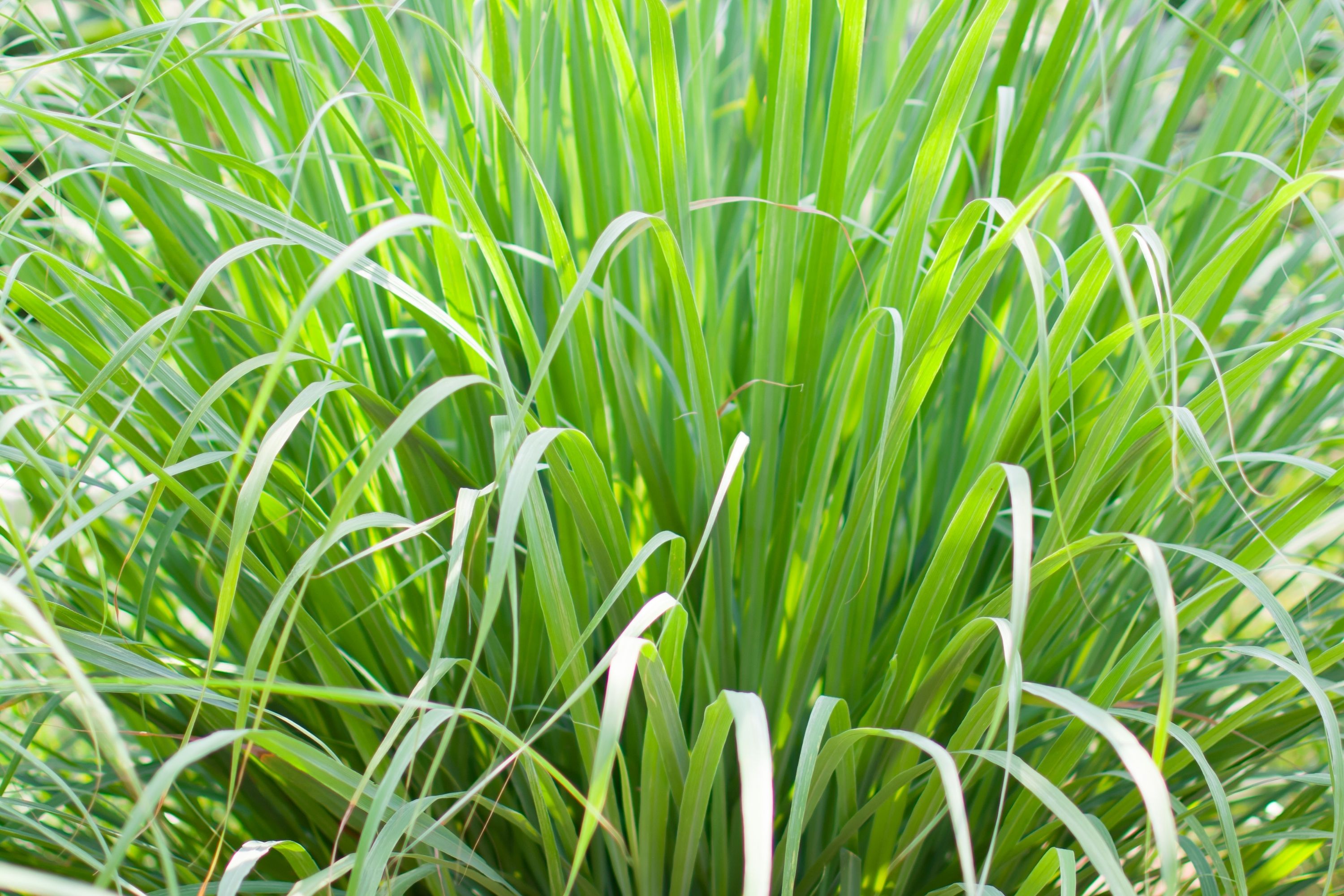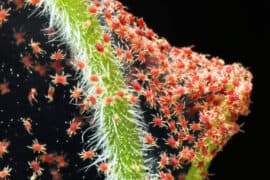Lemongrass
(Cymbopogon citratus)

Description
Cymbopogon citratus, commonly known as lemongrass, is a tropical grass species that is widely used for culinary, medicinal, and ornamental purposes. It is native to Southeast Asia and has been cultivated in many parts of the world for centuries. This plant belongs to the family Poaceae and is related to other economically important crops such as maize, wheat, and rice. Description Cymbopogon citratus is a perennial grass that grows up to 1.5 meters in height. It has a clumping growth habit with long, narrow, and fragrant leaves that are bluish-green in color. The stems are thin, and the base of the plant is bulbous. The plant produces inflorescences that are comprised of spikelets arranged in a panicle or raceme. The flowers are small and inconspicuous and do not have any ornamental value. Cultivation Cymbopogon citratus prefers warm and humid climates and grows best in well-drained soils that are rich in organic matter. It is a sun-loving plant that requires at least six hours of direct sunlight per day. It is also tolerant of drought and can survive in areas with low rainfall. In regions with cold winters, it is best grown in pots or containers that can be moved indoors during the winter months. The plant can be propagated by seeds or by dividing clumps of mature plants. Uses Cymbopogon citratus is a versatile plant that has many culinary and medicinal uses. The leaves and stems of the plant are used to flavor soups, curries, and stir-fries in many Asian cuisines. The plant is also used to make tea, which has a refreshing lemony flavor and is believed to have medicinal properties. The essential oil extracted from the plant is used in perfumes, soaps, and insect repellents. The plant is also used in traditional medicine to treat a variety of ailments such as fever, cough, and digestive problems. Medicinal properties Cymbopogon citratus has several medicinal properties that have been scientifically proven. The plant contains essential oils that have antibacterial, antifungal, and anti-inflammatory properties. The oil has been shown to be effective against several types of bacteria, including Escherichia coli and Staphylococcus aureus, which are responsible for many infections. The oil has also been shown to be effective against fungi that cause skin and nail infections. The plant has been used to treat fever and cough, and recent studies have shown that the plant may have a role in the treatment of cancer and diabetes. Precautions While Cymbopogon citratus is generally safe for human consumption, some precautions should be taken. The plant should not be consumed by pregnant or breastfeeding women, as its safety in these populations has not been established. In some people, the plant may cause allergic reactions or skin irritation. People with liver or kidney disease should also avoid consuming the plant, as it may interact with certain medications. Conclusion Cymbopogon citratus is a versatile plant that has many culinary and medicinal uses. It is easy to grow and maintain, making it an excellent choice for home gardens. The plant's lemony flavor and fragrance make it a popular ingredient in many dishes, and its essential oil has many industrial and medicinal applications. While the plant is generally safe for human consumption, some precautions should be taken, particularly by pregnant or breastfeeding women and people with liver or kidney disease. Overall, Cymbopogon citratus is a valuable plant that has many uses and benefits.
Taxonomic tree:







